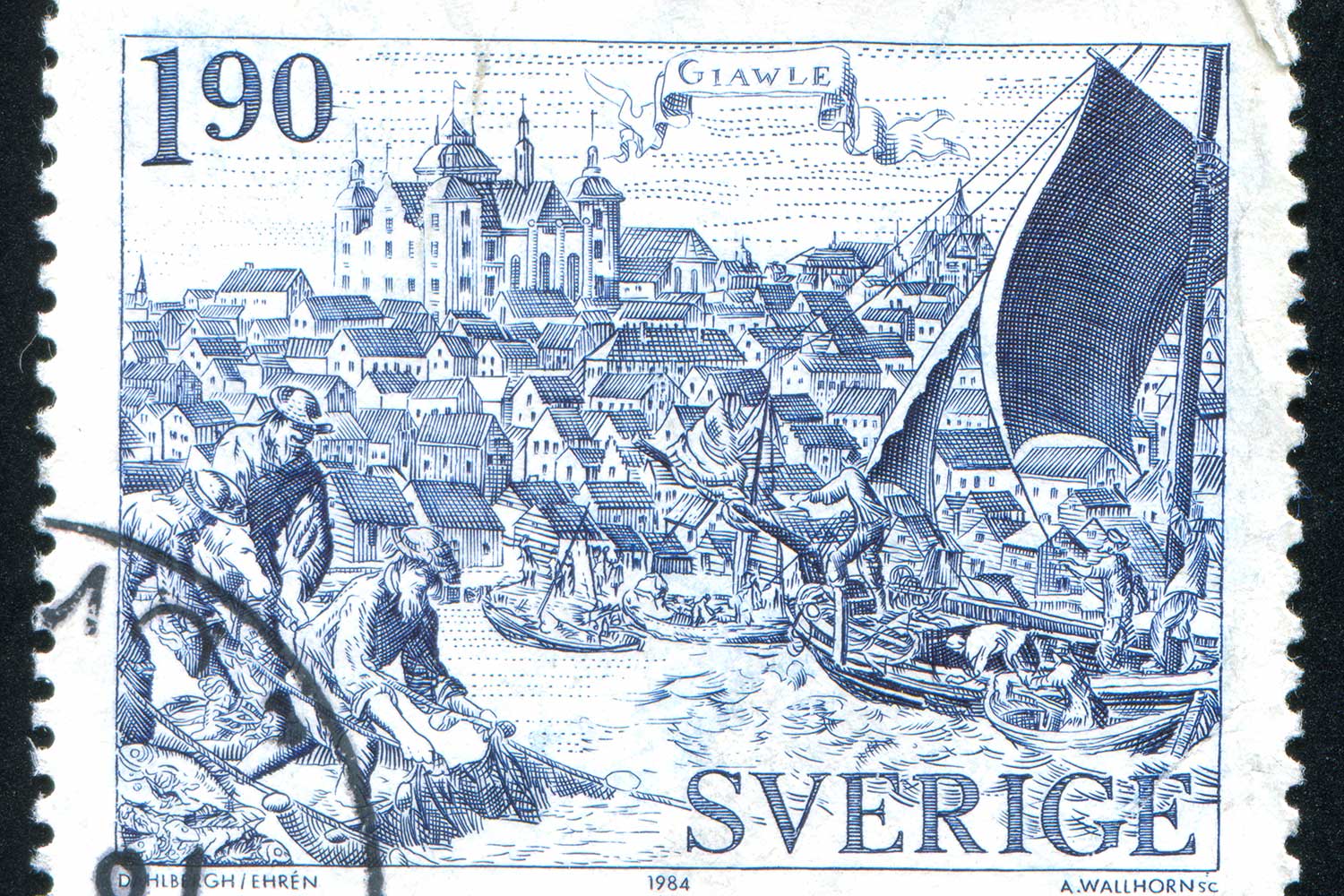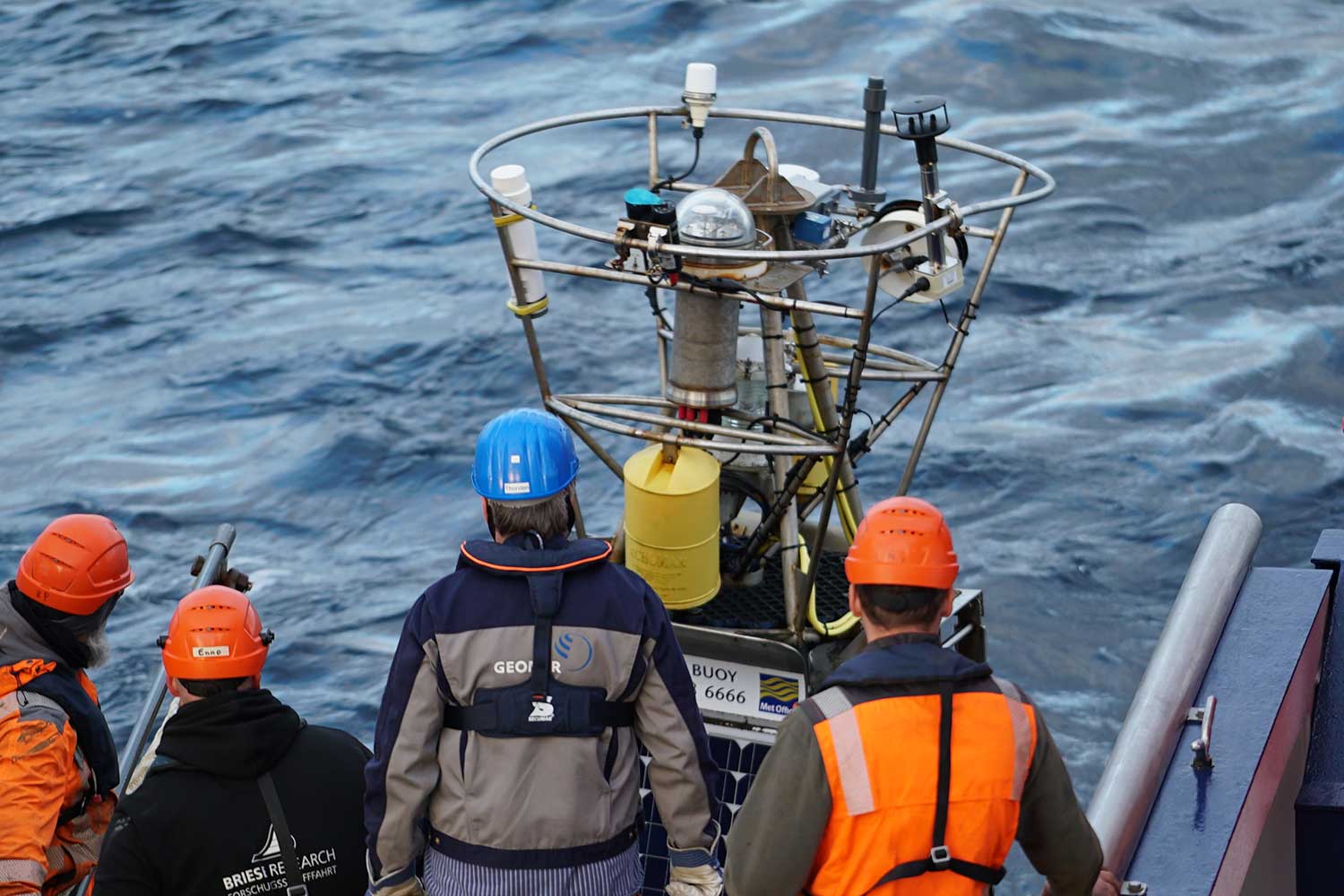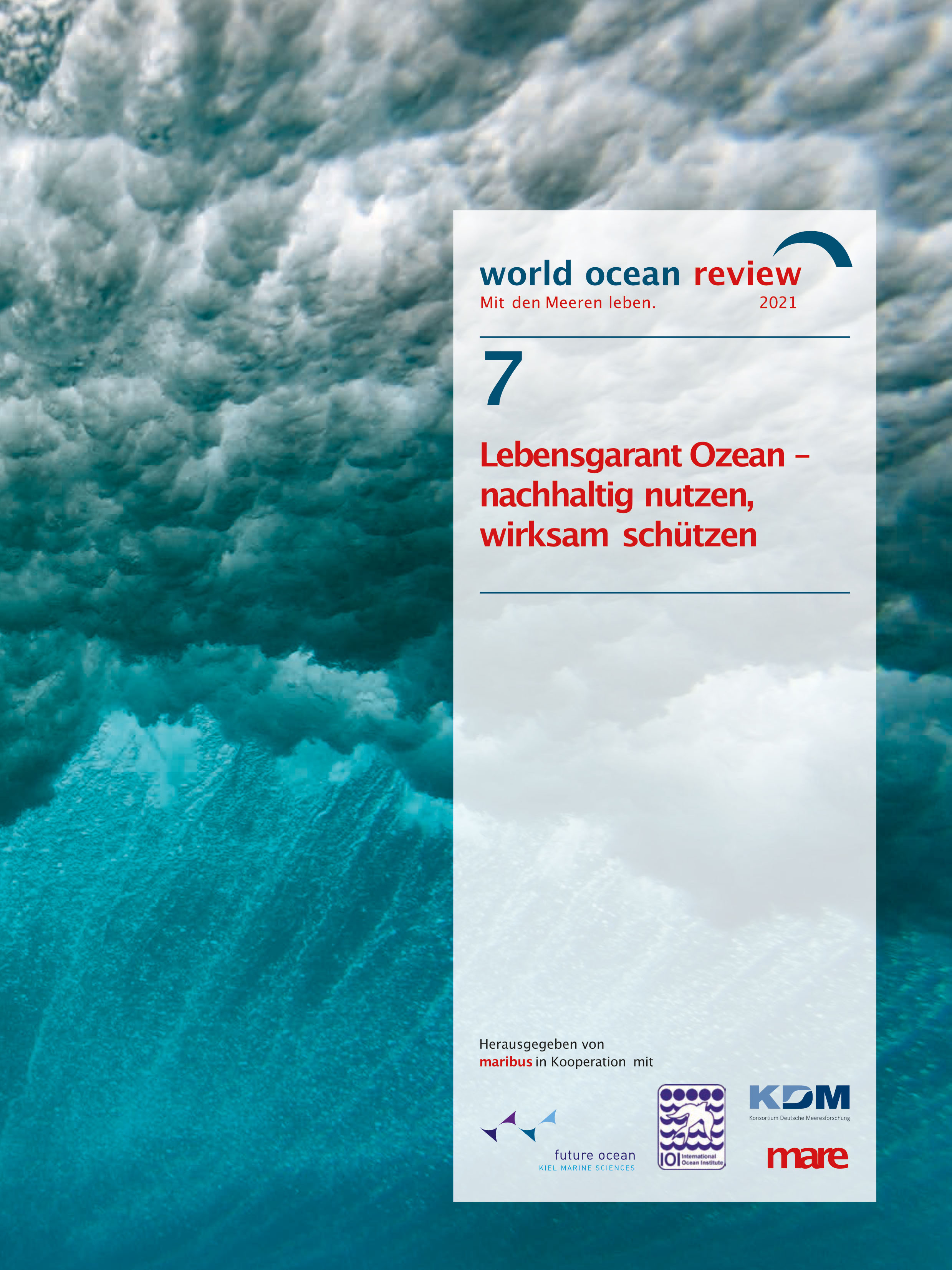Language is generally an excellent mirror of reality. And if anything can be concluded more than ten years after the publication of the first World Ocean Review, then it is clear: the tone of the ocean debate has intensified. Where there was previously talk of change, the dominant term is now crises – in plural. We now speak of irreparable damage, the extinction of species, the ocean as a garbage dump, collapsing ecosystems and the destruction of millions of people's livelihoods.
However, politics, industry and science are promoting the ocean as a bringer of hope. Coastal States rely on the growth sector of the maritime economy and expect billions in profits from offshore wind power, aquaculture and the commercialisation of active ingredients from the sea. In the deep seas of the Pacific, mining companies are testing giant caterpillar machines for the extraction of mineral-rich manganese nodules, and in the international climate negotiations, the carbon storage potential of mangroves, seagrass meadows, salt marshes and kelp forests is being promoted under the keyword "Blue Carbon".
As has often been said, humanity must finally come to sustainably use the ocean and pay attention to the limits of its capacity in order to achieve growth, prosperity and a liveable climate in the future. Marine research in Germany and around the world has generated new knowledge in the last ten years, not only to better describe the problem zones in the ocean, but also to develop potential solutions. On the question of how and when, it turns out that drastic changes are required in the very near future.
An understanding of mechanics and changes in the Seas is now more important than ever
This dilemma between the promise and reality of the human-sea relationship is the focus of the seventh edition of the World Ocean Review, to be published on 23 November 2021 by the non-profit organisation maribus gGmbh with the support of the magazine mare, the International Ocean Institute (IOI), as well as climate and marine researchers from the German Marine Research Consortium (KDM) and the Kiel Future Ocean Network.
"A science-based yet easily understandable, free marine report showing the complex threats to the seas and potential solutions seemed a long-overdue necessity over ten years ago, as the ocean was predominantly seen as a medium for transport and tourism", said Nikolaus Gelpke, initiator and editor of the World Ocean Review, founder of the magazine mare, and director of the International Ocean Institute (IOI). "Due to the climate debate and the plastic pollution problem, the oceans have meanwhile moved into the broader view of the public, and therefore also of politics – and we are observing that the complexity of processes such as ocean warming or overfishing increasingly requires explanation based on facts. Against this background, the concept of the World Ocean Review has proven its worth."
The way towards sustainable use of the ocean
The seventh edition of the World Ocean Review focuses on the effects of climate change on the state of the ocean and its communities; the consequences of rapidly increasing fishing, shipping, resource depletion, energy generation and marine pollution, along with questions of how the sea can be used more sustainably and how the ocean can be managed in the future so as to guarantee both its protection and while sharing among everyone the goods and services it provides. The new WOR offers comprehensive solutions for sustainable use of the ocean in all subject areas, provides best-practice examples and refers to a variety of international marine protection agreements, which represent important instruments, although to date their implementation has not been successful in many aspects. A new possibility to improve the visibility of the ocean is the Decade of Ocean Science for Sustainable Development declared by the United Nations, which has set itself the goal of consolidating and sharing knowledge in order to call on the international community to demand more sustainability in the human-sea relationship and implement binding measures to protect the oceans.
"In 2021 or in the first year of the UN Decade, one insight is important: a global ocean crisis can only be contained with the active involvement of all social actors worldwide in gaining knowledge of marine science – from governments, local decision-makers, to companies and to every individual. The foundations for a transformative transition from overuse and towards sustainable use of the sea are scientifically sound, easily understandable and comprehensive knowledge bases. And this is what the World Ocean Review offers", said Prof. Dr. Martin Visbeck, co-speaker of the Kiel Future Ocean Network and leader of the physical oceanography research unit at the GEOMAR Helmholtz Centre for Ocean Research in Kiel.
Setting the course towards sustainable protection and use of the ocean is a mammoth task, emphasise the scientific partners of World Ocean Review 7. However, they explicitly advocate for remaining confident and committing to innovative, transformative and collaborative engagement for a healthy ocean. "Management of the seas comes with the great responsibility of implementing scientific knowledge in such a way that the various demands from society, economy and nature conservation on the use of the sea are coordinated in such a way that the greatest natural treasure on Earth – our ocean – is preserved over the long term", said Prof. Dr. Ulrich Bathmann, director of the Leibniz Institute for Baltic Sea Research Warnemünde (IOW) and director of the German Marine Research Consortium (KDM).
Photos and Press Material Online
A preview version of the World Ocean Review 7, photo material, as well as an extensive interview with WOR initiator Nikolas Gelpke can be found at
https://worldoceanreview.com/de/wor-7-preview
The WOR 7 is available to order and download at
www.worldoceanreview.com
Contact
Charlotte Zarzycki
Presse und Öffentlichkeit
Tel. +49 40/ 36 80 76 50
zarzycki@mare.de
…



